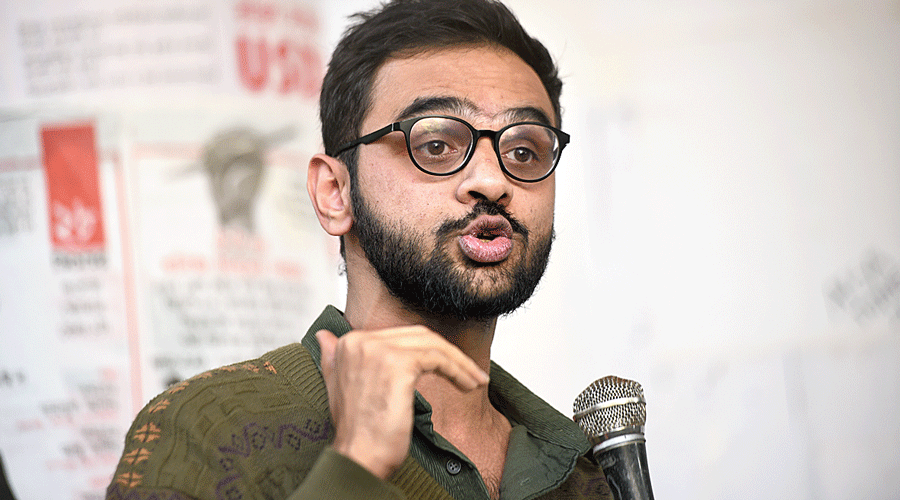Delhi High Court on Friday said the speech given by Umar Khalid that forms the basis of a case against him related to a larger conspiracy behind the Delhi riots of February 2020 was obnoxious and prima facie not acceptable.
The court sought Delhi police’s response to his plea seeking bail.
A bench headed by Justice Siddharth Mridul said certain statements in the speech were “offence per se” and gave an impression that only one institution fought for the independence of the country.
The court granted three days to the Delhi police, represented by special public prosecutor Amit Prasad, to file a short reply to the bail application related to the case lodged under the stringent UAPA and listed the case for further hearing on April 27.
A part of the speech by Khalid in Amravati in February 2020 was read out by his counsel before the bench, which also had Justice Rajnish Bhatnagar.
Referring to Khalid’s remarks that “Jab aapke purvaj dalali kar rahe the (When your ancestors were brokering)”, the court said: “This is obnoxious. These expressions being used, don’t you think they incite people?”
“There are no qualms against free speech but what are you saying?” observed the court.
“This is offensive per se. You said it at least five times.… Don’t you think it foments religious ferment between groups? Did Gandhiji ever employ this language? Did Bhagat Singh employ this language against the English? Is this what Gandhiji taught us that we can use such intemperate language against people and their ‘purvaj’?” questioned the court.
The court asked if free speech could extend to “obnoxious statements” and if the speech did not attract the law against promoting enmity between religious groups.
“Can free speech extend to making these obnoxious statements? Does it not attract Sections 153A and 153B (of the IPC)? Prima facie this is not acceptable,” it said.
“It is very easy to invoke Bhagat Singh but difficult to emulate him.… There was a gentleman who was eventually hanged.... He stayed there..., he did not run away. You are saying you weren’t even there,” stated the court.
Senior advocate Trideep Pais, appearing for the petitioner, said the Amravati speech was made in the context of protests against the Citizenship Amendment Act (CAA) and the violence at Jamia Milia Islamia.
He also said the speech did not have any “reaction” and did not incite violence.
The senior lawyer sought bail on grounds that Khalid was not present when the violence broke out, no money was recovered from him and the case is based on cooked-up statements.
The court stated that the accused need not be present at the place of the offence for the offence of conspiracy.
The senior lawyer informed the court that the present FIR was “premised” on certain portions of the speech.
“We are not surprised,” said the court.
Khalid and several others have been booked under the anti-terror law in the case for being the “masterminds” of the February 2020 riots, which had left 53 people dead and over 700 injured.
The violence had erupted during the protests against the CAA and the National Register of Citizens.
On March 24, the trial court had denied bail to Khalid, saying there were reasonable grounds to believe that the accusations against him were prima facie true.
The trial court had noted from the charge sheet that there was a premeditated conspiracy of a disruptive “chakka jam” and a preplanned protest at 23 different sites, which was to escalate to confrontational “chakka jam” and incitement to violence, resulting in riots.
Besides Khalid, activist Khalid Saifi, JNU students Natasha Narwal and Devangana Kalita, Jamia coordination committee members Safoora Zargar, former AAP councillor Tahir Hussain and several others have been booked under the stringent law in the case.











